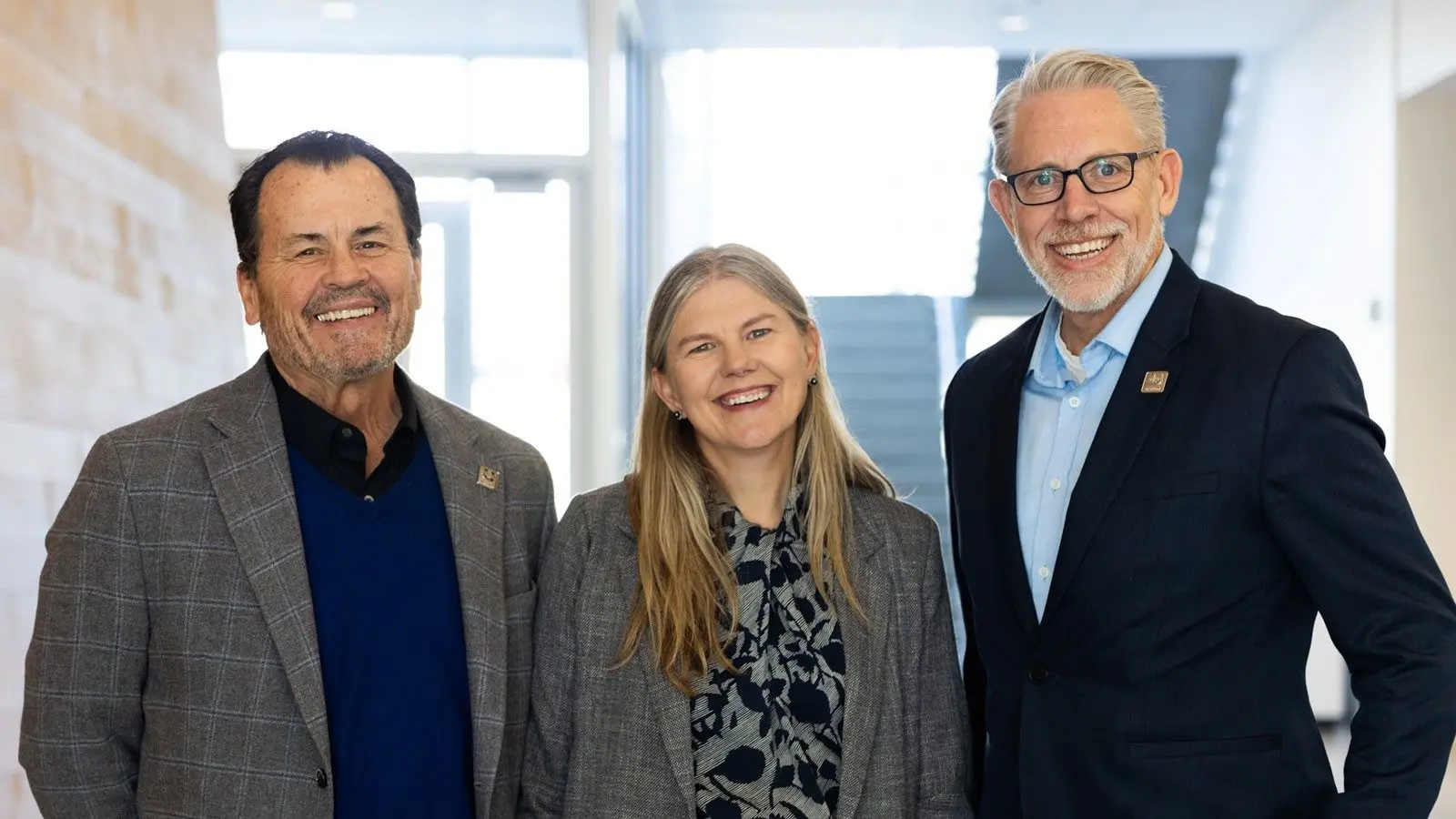
Utah State University News Release
PRICE, Utah — Utah State University Eastern faculty, staff and students gathered on Oct. 31 to celebrate the inaugural lecture of Sunshine Brosi, professor of wildland resources and director of the graduate program in Natural Resources statewide and the Price campus’s undergraduate Wildlife Ecology and Management major.
Earning the rank of full professor is one of the highest academic honors a faculty member can achieve, representing years of excellence in teaching, research and service to both university and community. The milestone recognizes a scholar’s sustained impact in their field and their leadership in mentoring others. At USU, the achievement is marked by an inaugural lecture — a tradition where newly promoted professors share insights from their academic journey, their scholarship and their vision for the future.
Brosi’s presentation, titled “Woven in Community, Rooted in Purpose, and Inspired by Wild Places,”explored three guiding themes that have shaped her career and continue to influence her teaching and research at USU Eastern: community-engaged learning, career readiness skills and a passion for the discipline.
“The inaugural lecture is an opportunity to share my excitement and passion for the work that I do,” Brosi said. “It’s a full-circle reflection on how community, purpose and inspiration have woven through my life and career — and how I now strive to provide those same opportunities for my students.”
Growing up in a small coal-mining town in eastern Kentucky, Brosi’s early experiences with 4-H and forestry shaped her lifelong connection to nature. As a teenager, she participated in the 4-H Wildlife Habitat Education Program, where her team’s national competition brought her to Brian Head, Utah — an event that would later foreshadow her move west decades later.
That same competition was coordinated by Mike King, whom she would meet again 25 years later, this time as a finalist interviewing to fill his faculty position at USU Eastern.
“It was a full-circle moment,” she said. “It felt like my story had come home.”
Those experiences instilled in her a deep commitment to experiential learning and mentorship, values she carries into every class she teaches. Today, Brosi continues to judge national 4-H competitions and credits those formative experiences for teaching her the power of community-based education.
Brosi’s lecture highlighted how her work connects students, science and society. Through her leadership, the Wildlife Ecology and Management program has become a model for hands-on, community-driven learning that prepares students for meaningful careers. She has secured over $1.38 million in external funding to support student internships, research opportunities and professional development — removing barriers and creating access for rural and first-generation students.
“I hope attendees walked away with a deeper understanding of how personal history, community engagement and job-skill training are woven together in the work we do at USU Eastern,” Brosi said. “Our students are making real-world impacts — restoring mined lands, supporting tribal economies and monitoring endangered wildlife.”
Her presentation also underscored the transformative potential of place-based education, where rural identity is viewed as a strength, not a limitation.
“My goal is to show students that their backgrounds, their communities and their lived experiences are valuable parts of science and conservation,” she said.
Among the most memorable moments of the evening was Brosi’s story about her mother — a one-room schoolhouse teacher in Harlan County, Kentucky — who once comforted a student ashamed of her handmade dress.
“She told her, ‘Knowing how to sew your own clothes is an amazing skill,’” Brosi said. “That story represents so much of what I believe in: celebrating the resourcefulness, creativity and dignity of rural communities.”
The anecdote resonated deeply with the audience, capturing Brosi’s message that education, when rooted in empathy and belonging, uplifts both individuals and communities.
With over 3,100 students taught across 37 courses and 170 academic presentations delivered, Brosi’s influence reaches far beyond the classroom. She has integrated research, teaching and service in ways that advance both student success and regional ecological resilience.
Her collaborations on publications and grants span statewide campuses — from Vernal and Blanding to Nephi and Roosevelt — building a network of educators committed to innovation and mentorship.
“My students are creating new knowledge that enhances wildlife management across Utah,” she said. “They’re confident, capable and community-minded, and they’re already making a difference with the Utah Division of Wildlife Resources and other partners.”
As she reflected on her lecture, Brosi emphasized her excitement for the future.
“I’m eager to continue strengthening our statewide community of educators and supporting my colleagues as they advance their own research and teaching,” she said.
The atmosphere in the lecture hall that day was one of pride and shared purpose — filled with laughter, inspiration and an unmistakable sense of connection.
“The energy in the room was incredible,” Brosi said. “It was a celebration of community, mentorship and the joy of teaching.”
Through her words, stories and leadership, Brosi reminded the USU Eastern community that education — like the forests she studies — is strongest when its roots run deep, its branches reach wide and its purpose is grounded in connection.
